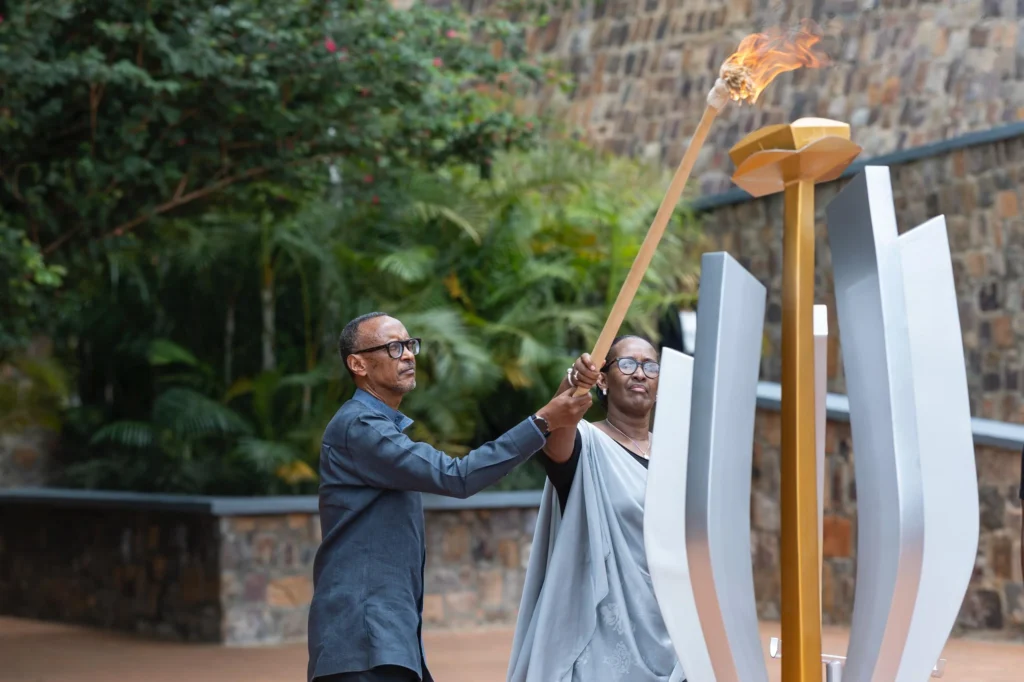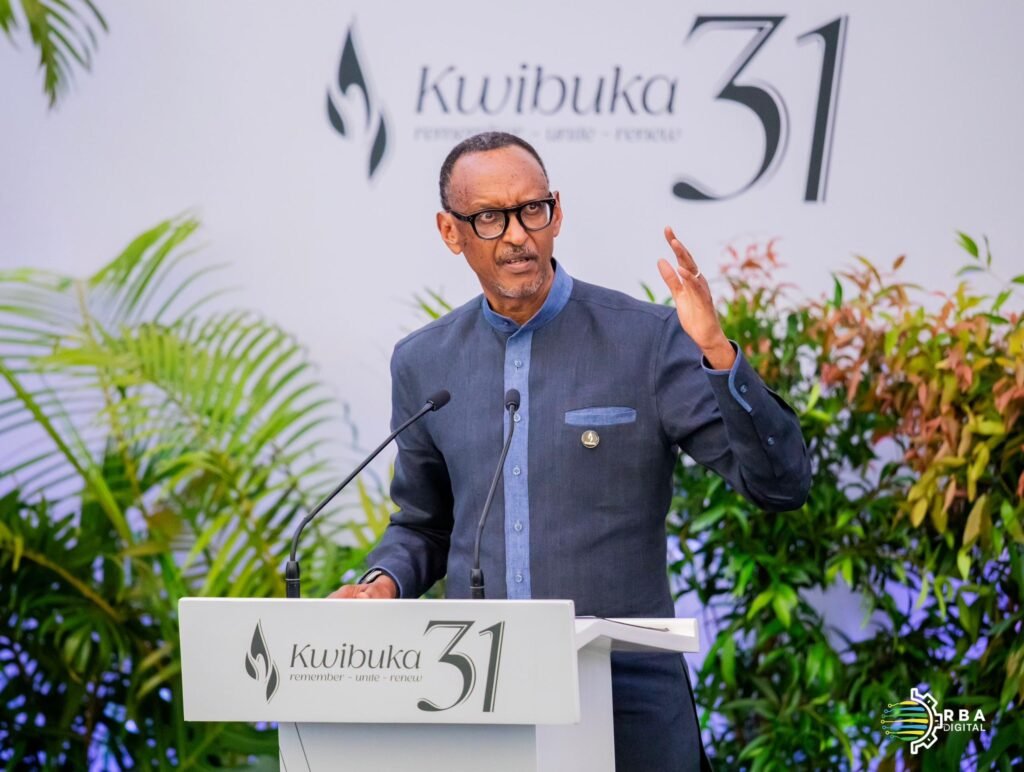KIGALI, RWANDA — In a powerful address during Kwibuka 31, the 31st commemoration of the 1994 Genocide against the Tutsi, Rwandan President Paul Kagame delivered a resolute message, affirming Rwanda’s determination to never again succumb to the forces that once threatened its existence.
At the Kigali Genocide Memorial on Sunday, where over 250,000 genocide victims are interred, President Kagame and First Lady Jeannette Kagame joined thousands of Rwandans and members of the diaspora in lighting the Flame of Remembrance and laying wreaths to honor the more than one million lives lost during the genocide. This year’s theme, “Remember – Unite – Renew,” underscored both the remembrance of a profound trauma and the enduring resilience of the Rwandan people.
“What didn’t kill us and finish us 31 years ago, has hardened us,” Kagame declared. “And for those who desire to harm us, I assure you, we will not die without a fight like last time.” His reference to “where we came from” served as a stark reminder of the 1994 genocide, a state-sponsored campaign of extermination against the Tutsi minority, and moderate Hutus, initiated by extremist elements within the then-government.
Over 100 days, until July 4, 1994, more than one million people were brutally murdered, a tragedy witnessed by the world in silence. The genocide ended with the Rwandan Patriotic Army (RPA), led by Paul Kagame, halting the killings and taking control of the country, leaving Rwanda devastated.
Despite this horrific past, Rwanda has undergone a remarkable transformation. From a nation in ruins, it has emerged as one of Africa’s most stable and progressive countries, with Kigali now recognized as one of the continent’s cleanest cities. This recovery was built on truth-telling, reconciliation, and justice, epitomized by the Gacaca courts and the national identity philosophy of “Ndi Umunyarwanda.”
“To Rwandans, I beg you, don’t owe your life to anybody else,” Kagame urged. “There’s a chance, a significant chance, that if you stand up and fight, you’ll live and you will have lived a dignified life that you deserve.”
Kagame’s defiant stance extended to international actors who have recently increased pressure on Rwanda regarding the conflict in eastern DR Congo. Western governments have imposed sanctions, accusing Rwanda of supporting the M23 rebellion, a claim Kigali vehemently denies, citing the threat of the FDLR.
“If these allegations were true, Rwanda would be as rich as you are,” Kagame stated, rejecting accusations of mineral looting. In response to what it perceives as bias, Rwanda has severed diplomatic ties with Belgium. “We are not afraid of any sanctions,” Kagame declared. “And I will tell anybody to their face to go to hell.”

He emphasized Rwanda’s strengthened resolve, warning against any attempts to undermine its sovereignty. “Rwandans should be itching for a fight with anyone who wants to come here and turn things upside down. To our friends and partners, don’t misunderstand us, don’t mistreat us. We have had enough.”
Kagame stressed that international cooperation must be based on mutual respect. “For my sanity and the country’s sanity, we just try to do things differently. If you want to be helpful, to be partners, we are happy to play our part—and you can be sure you’ll find a reliable partner in us.”
He also addressed other Africans facing oppression. “My message goes to other Africans who live [in fear] every single day, who are dehumanized and accept it, and they beg. I can’t beg anybody to live. We will fight.”
As the Flame of Remembrance burns, Rwanda stands as a testament to resilience and the possibility of rebirth. “If you want to see us where we came from,” Kagame said, “I want to assure you that you will not succeed.”

